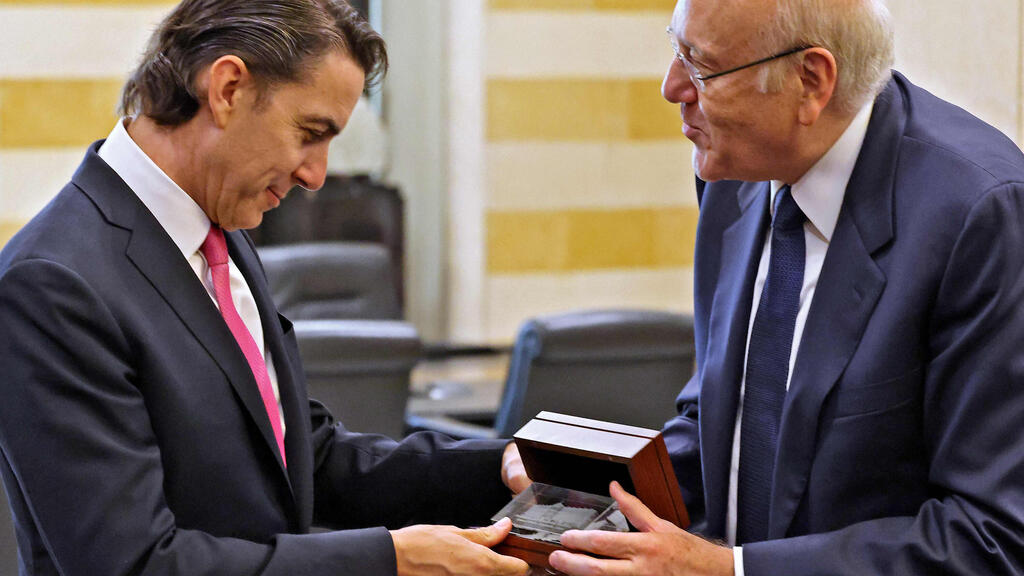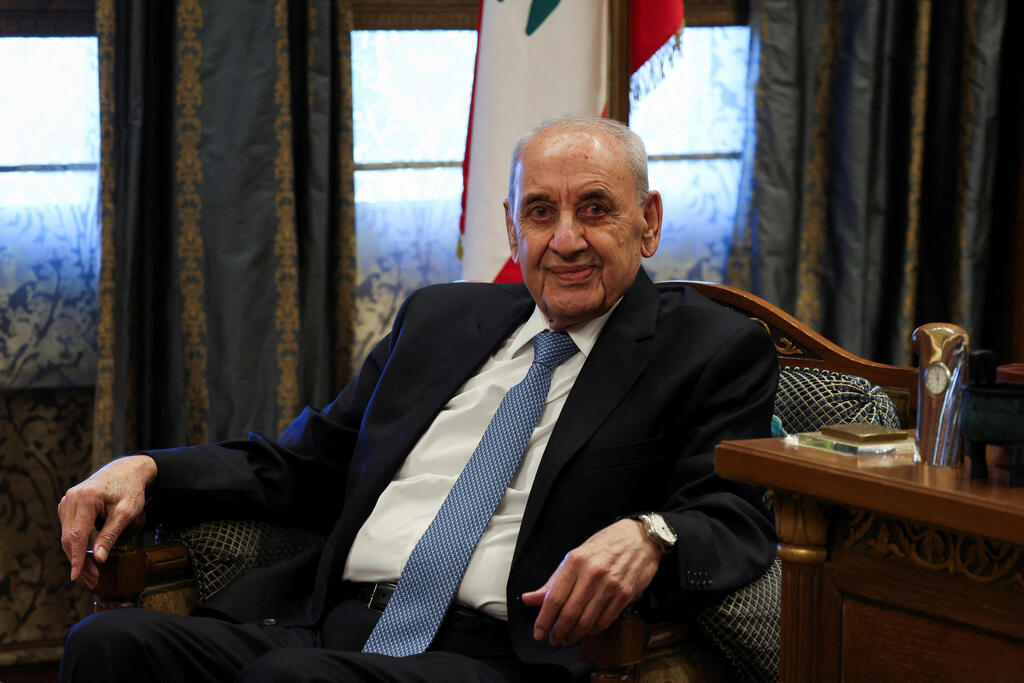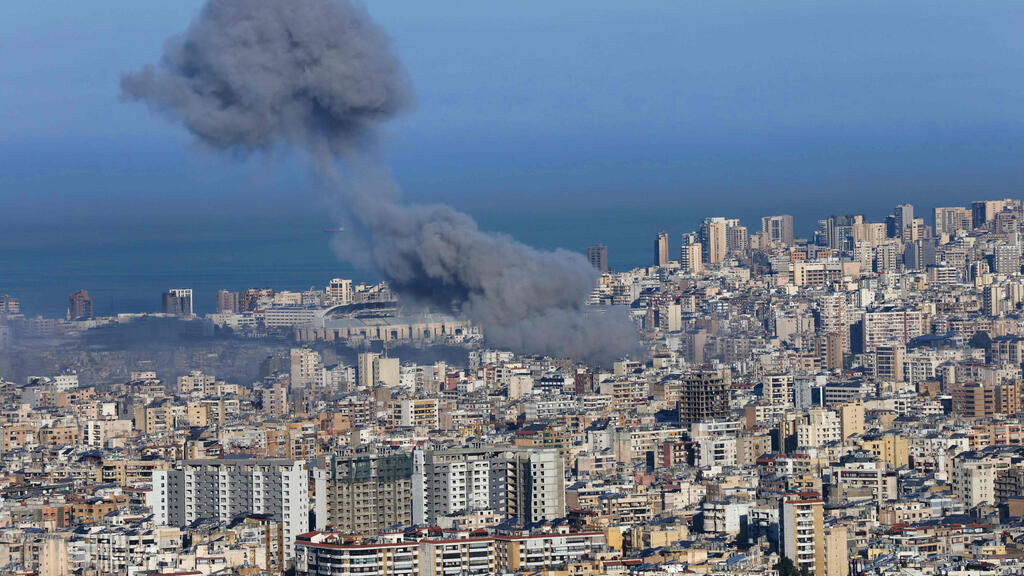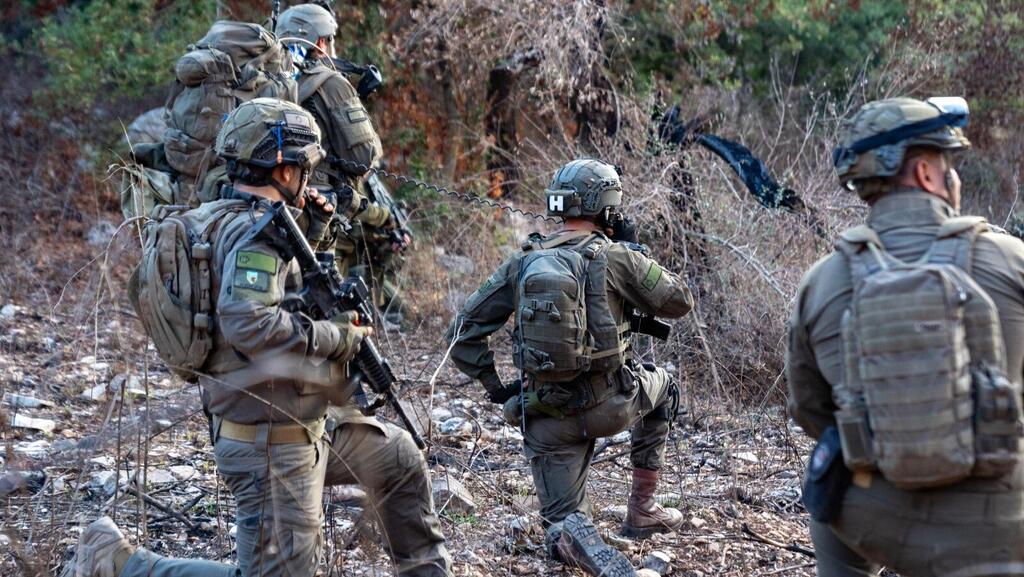Getting your Trinity Audio player ready...
President elect Donald Trump gave his approval to the outline of the agreement being negotiated to bring a cease-fire to the fighting between Israel and the Hezbollah terror group in Lebanon, the Wall Street Journal reported on Friday.
Israeli officials told the paper that Strategic Affairs Minister Ron Dermer, presented the outline of the agreement to Trump in their meeting last week and the incoming president expressed him hope that the agreement could come into effect before he took office on January 20, 2025.
5 View gallery


Benjamin Netanyahu, Joe Biden, Donald Trump
(Photo: Abir Sultan /AFP, Alex Brandon / AP, Susan Walsh / AP, IDF)
The U.S. presented the outline to the government in Beirut on Thursday. Officials in Washington and in Jerusalem were awaiting their reply that could, according to the Israeli officials, come within days.
U.S. President Joe Biden's special envoy, Amos Hochstein told the Lebanese that he would not arrive to Beirut if he did not believe the government there was prepared to seal the deal.
Hochstein gave the head of Lebanon's caretaker government Najib Mukati and Speaker of parliament Nabih Berri, who was negotiating on behalf of Hezbollah, the draft of the agreement. According to a report in the Lebanese Al Jadeed channel, Berry delivered Lebanon's response and was "optimistic about a cease-fire within days or a week," but that report was removed quickly.
The Hezbollah-affiliated Al Akhbar newspaper on Thursday reported that Berri and Mukati rejected Israel's demands for freedom to operate in Lebanon if the agreement that would be reached, would be violated and Hezbollah would return to South Lebanon or rebuild its military capabilities.
The Lebanese demands, according to the report was an immediate cease-fire and the return of residents of the south to their villages, a complete withdrawal of all Israeli troops from the south and a ban on any IDF activity on Lebanese territory on land, in the air or at sea. Beirut's demand was also that there would be no amendment to UN resolution 1701 passed at the end of the 2006 Second Lebanon war.
The IDF meanwhile continued its offensive in South Lebanon, operating in the second line of villages away from the Israeli border, to remove Hezbollah's capabilities to fire missiles and rockets at Israel. The IDF conducted more airstrikes on the Dahieh quarter in Beirut after repeated attacks there in recent days. The military said it was targeting Hezbollah weapons stores and production facilities.
IDF strikes on the Dahieh on Friday
Prime Minister Benjamin Netanyahu held consultations with Dermer, Defense Minister Israel Katz and with his far-right coalition partners Itamar Ben-Gvir and Bezalel Smotrich to discuss both the Lebanon and Gaza fronts.
Get the Ynetnews app on your smartphone:









